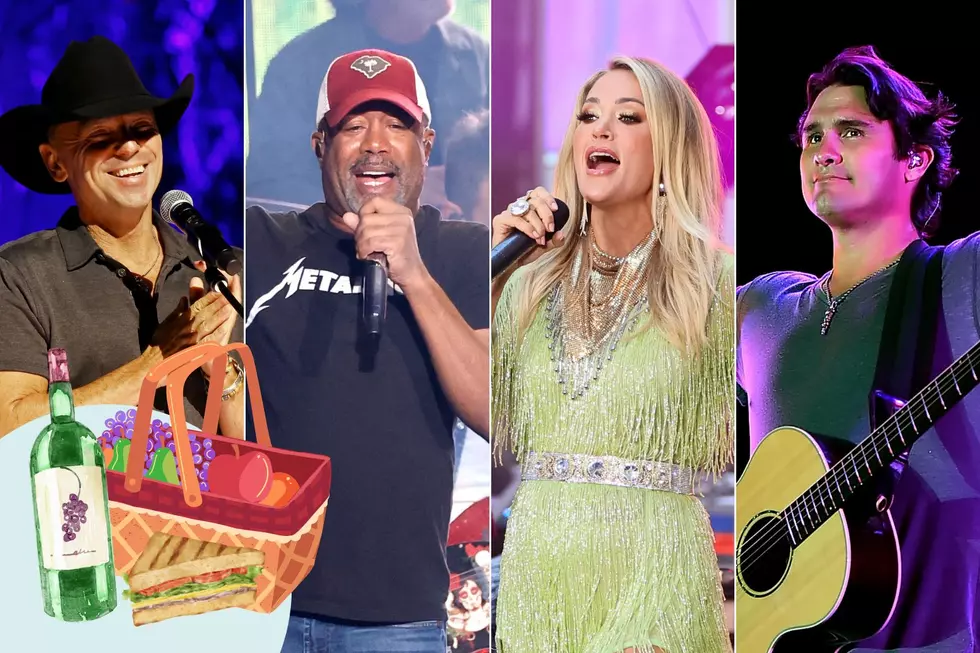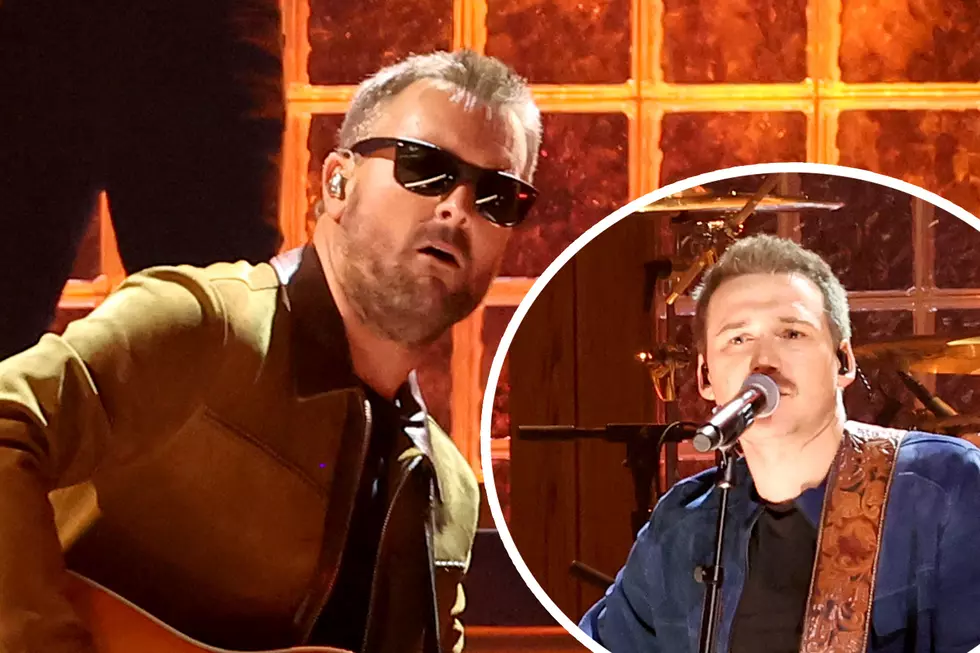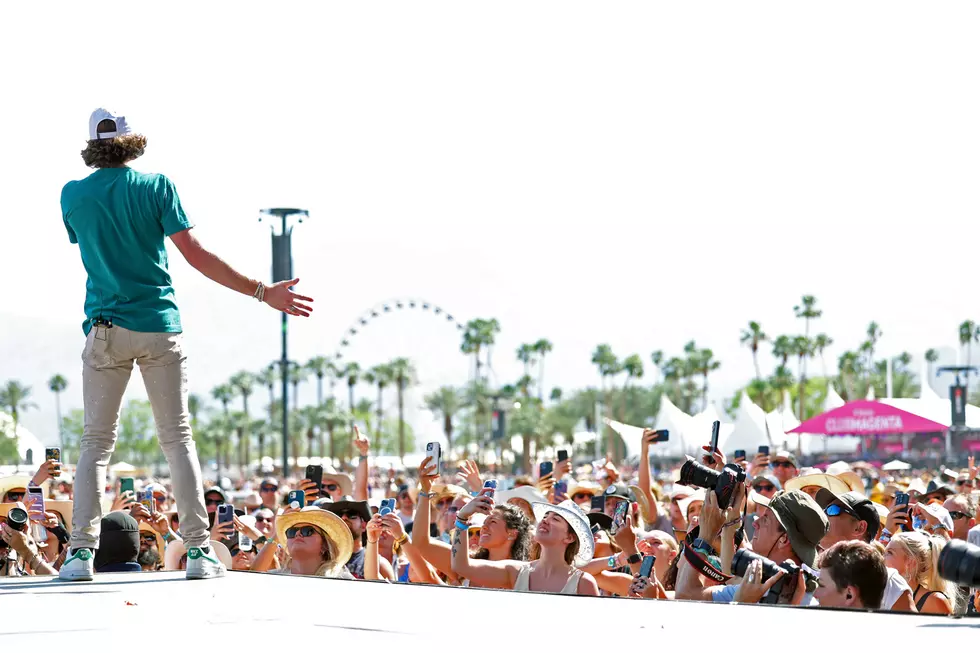
The Show Must Go On: The Economic Realities of Touring
"The show must go on." We've heard that sentiment expressed in the music business many, many times over the years. But have you ever stopped to ask yourself why?
Performers in country music often endure some pretty extreme circumstances to bring live shows to their fans, including inclement weather, tough traveling conditions, illness and even injury. In the last couple of years we've seen Craig Morgan onstage with a sling after shoulder surgery, Chris Young onstage with his arm in a sling after cutting his hand so badly he had to undergo surgery to repair damaged tendons, Jake Owen performing just hours after having part of one of his fingers amputated and most recently, a guitar-less Frankie Ballard performing live after separating his shoulder and breaking a rib at a show in Texas.
The musicians that perform in country music are tough people. They'll stick with it.
But Eric Church topped them all recently in Salt Lake City, when he went onstage in front of 11,000 fans to perform an all-acoustic solo show after his entire band and crew fell ill. The awe-inspiring moment was a true testament to the gritty work ethic of country music.
"Particularly in country music, the musicians that perform in country music are tough people. They'll stick with it," says Dhruv Prasad, Executive VP of Live Events at Townsquare Media, Taste of Country's parent company. "One of the great stories of 2015 so far in the concert business is Eric Church. I would like to think that in country music, there's probably a higher portion of artists who would do something like that."
"Even in country music, that's pretty unique," he adds with a laugh. "But I gotta believe that it's more likely in country for someone to do something like that than in other genres of music. As someone who's worked across different genres of music, country artists always stand out for their commitment to their fans and their ability to perform. It's very rare on the country side for an artist to cancel a show. Less rare in other genres of music."
There are two primary reasons country artists are fanatical about not wanting to cancel shows: first, they obviously don't want to disappoint fans who have purchased tickets and looked forward to a special night out for weeks or even months, and second, it's just not good for business. In Church's case, a recent behind-the-scenes with CBS revealed that his current The Outsiders tour cost $19 million to stage and requires more than 100 crew members putting in 18-hour days, 170 tons of equipment, 14 trucks and 12 buses to keep it running.
While not every artist in country music is touring at that level, all of them have significant investment in a show before they arrive in a given town.
"The artist has commitments to their supporting musicians, they have commitments in terms of equipment and busing, and ground and travel staff," Prasad says. "So there are certain economic commitments that they've made that make it hard to cancel shows."
On any given day there are the built-in costs of transportation, salaries for musicians and technical support staff, per diems, meals, hotels and incidentals.
There are also financial disincentives built into contracts between artists and promoters, he explains. "Artists have the ability to cancel shows in their promoter contracts. It depends on the amount of time before the show that the cancelation is occurring; different things get triggered. They have the ability to cancel, but it's lost revenue to them."
Tours operate on a money in/money out basis; on any given day there are the built-in costs of transportation, salaries for musicians and technical support staff, per diems, meals, hotels and incidentals. That's money out, but there's only money in on the day of a performance that goes forward. If an artist arrives in town and feels too sick to perform, those costs have already been incurred, but they can't be recovered.
"You don't get paid," Prasad says simply. "In most cases, if you don't perform, you don't get paid, unless you re-schedule a date or whatever. But really, quite simply it comes down to that. The industry as a whole operates on the basis of, you have to perform. If you don't perform, you have to refund tickets. There's a lot more advance sales than there used to be, so it's complicated to cancel a show. You have many thousands of people who you need to refund, there's venues, there's production staff — many different components that go into a show that all need to be unwound in the event of a cancelation, and not without penalty. Every contract, whether it's with an artist, a production company or a busing company, has cancelation penalties."
Even if an artist re-schedules a show for another date in the same market to make it up, there are still some costs that can't be recouped, Prasad points out.
"If you spent tens of thousands of dollars to market a show for a certain date, and then you have to re-schedule the show to another date, you almost have to start from scratch sometimes, because you'll lose a lot of your ticket buyers. From the promoter side it's principally advertising, and maybe some venue costs, depending on what your deal with the venue is. On the artist's side, it's principally their production and their travel, and their band."
Country music is unique among all other genres and formats in that its stars can continue to tour successfully well into their later years, even decades after their biggest hits.
Of course, the economic realities of touring are just one part of the equation. Country music is unique among all other genres and formats in that its stars can continue to tour successfully well into their later years, even decades after their biggest hits. That's due in no small part to the special relationship between country artists and their fans.
"In the country format, the fans see the artists as more approachable than the fans do in other genres or music and other music formats. Rightly or wrongly, there's a sense among country fans that the country stars are sort of people like us, and therefore just much more approachable," Prasad states.
"Take The Voice — who's the most approachable guy on The Voice? If the average music fan is walking down the street, they're gonna think nothing of high-fiving Blake Shelton and saying hi to him. You'd think twice about Adam Levine," he says, laughing. "Adam Levine seems like a nice guy, but Blake sorta seems like — despite the fact that he's six foot four, and an international music star — other than that, he seems like us. He seems down to earth, he seems rooted and grounded."
It's that relationship that country artists strive so hard to nurture and preserve, and performing through adversity is one of the ways they do it. So next time you see one of your hardworking country heroes out by the bus after a show, take a moment to reflect on everything they had to go through to make it to town and to the stage that night. You might want to offer up a high-five of your own.
Just stay away from the arm that's in a sling.
The Best and Worst Stage Falls in Country Music
More From Taste of Country





![Craig Morgan Sings the National Anthem at Not One, But Two MLB Games [Watch]](http://townsquare.media/site/204/files/2024/04/attachment-Craig-Morgan.jpg?w=980&q=75)



